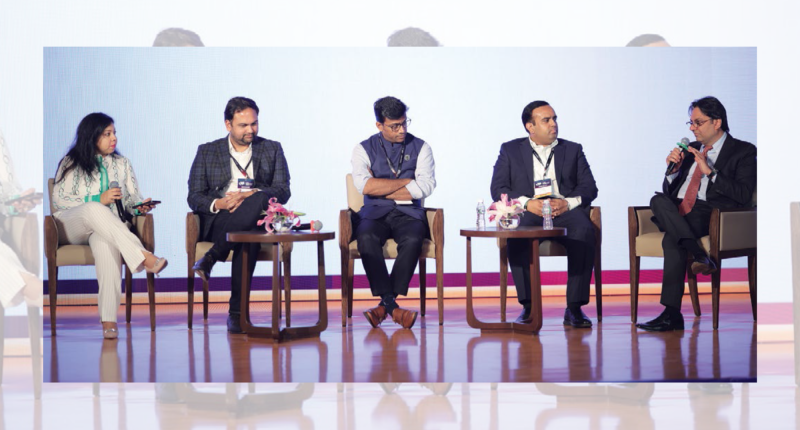
Opinions expressed by Entrepreneur contributors are their own.
You’re reading Entrepreneur India, an international franchise of Entrepreneur Media.
The world is moving towards a greener future, and India is actively working towards making it a reality. The country stands fourth globally in Renewable Energy Installed Capacity (including Large Hydro), Wind Power capacity and Solar Power capacity. In November, Power and New & Renewable Energy Minister R.K. Singh said that the country was on track for having 50 per cent of the capacity coming from renewables and reducing emission intensity by 45 per cent by 2030.
During a panel discussion on ‘How Green is Driving Opportunities for Investors‘, at the ‘India Live 2023’ Summit in Mumbai, organised by Entrepreneur Media, panelists discussed about what the space looked like, opportunities, challenges, and governement’s role in it. The panel comprised Mainak Chakraborty, CEO & Co-Founder, GPS Renewables; Sandiip Bhammer Founder & Co-Managing Partner, Green Frontier Capital; Vish Iyer Global CCO, Jakson Green; and Mohal Lalbhai, Founder & Group CEO, Matter.
Mohal Lalbhai, founder and group CEO, Matter feels that India cannot go green just because the world needs us to. “Solving consumer problems is the most important thing when you are looking at going green. It has to make sense to the consumer from a cost point; it has to have benefits which go above and beyond what competing conventional fossil fuels can offer,” he adds. As a VC, Bhammer looks at affordable innovation by Indian companies.
India is also attacting investements when it comes to green energy. Says Sandiip Bhammer, founder and co-managing partner, Green Frontier Capital, “We are trying to move away from sectors which are politically sensitive and therefore energy transition is one area where are not putting a lot of money.”
However, industry insiders think that ‘Green’ needs to be solid in its offering to have long-term relevance. And green hydrogen is taking centre stage. “India looks to be on the right track for the next 7-8 years, if not 15 years from the point of view of creating at least USD 20-30 billion of electrolyzers as well as ancillary market on the hydrogen side. By 2040, we are talking about a USD 40-50 billion kind of market on the hydrogen economy, and this entails everything,” shares Vish Iyer, CCO, Jakson Green as the government made policy announcements to support the same in the year 2023.
Another trend emerging is that India is investing via grants and policy, but according to Mainak Chakroborty, CEO and co-founder, GPS Renewables, it’s not enough. “I don’t think enough is happening with respect to converting that into successes. Changes are happening but it needs to be much faster. A stronger narrative is needed between the startup industry and the government, that could help a lot.”
This article is from Entrepreneur.com








